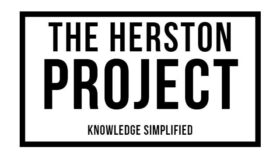Edge: Turning Adversity into Advantage
This article aims to bring-out the key ideas in the book “Edge” by Laura Huang. Edge tells us that being good enough isn’t enough – you need to be perceived to be good enough too. By using the 4 steps below, you can cultivate your edge and gain an advantage in business, life and everything else.
Why do we need an edge?
Success is rarely about being equal. Although we may think that you are being judged on how good you have performed, the quality of your ideas or the basis of your arguments, we are instead at the mercy of the perceptions that surround us.
Because of this, it is important to not let others assumptions – which can sometimes be very lazy – determine our fate. We should instead tell others who we are and take charge of our careers and lives over the long-term.
4 steps to gaining an advantage
1. Enrich yourself and others
Know what your basics are
We can become so fixated at becoming “the jack of all trades” that we end up becoming the master of none. We don’t have enough time to become the best at everything. Therefore, we need to focus our efforts and master a few key skills relevant to us.
Your basics should be what is expected of you. You should identify what these are by asking yourself and your organisation “What are the key elements to our survival?”. Once you know these you should put your focus on mastering these so you can truly enrich others.
Seek advice from others outside your circle
Seeking advice from others can provide useful insight into making improvements. But, gaining advice from others outside of your circle away from any “herd-like” mentality may provide new and novel insights into what is and isn’t working for you and your business. Those who have an unusual perspective of what you are working on may be able to identify incongruity and provide advice on areas you may never have considered before.
Re frame constraints and ask questions
When faced with problems, there can sometimes be a risk of focusing too much on the constraints and less on the opportunities. An interesting example from the book is how Audi’s chief engineer approached their car development at Le Mans – a 24-hour endurance car race. Instead of looking at their problem directly and asking “Do we have the fastest car?” They instead re framed their constraints to “What would we do if we didn’t have the fastest car?”. By re framing the problem, they opened themselves up to opportunities instead of issues.
2. Make others feel delighted
How we deliver things is important
Before you can provide value to others, you need to be “let in”. People need to feel as if you are worth their time. This is where delighting others is important.
When faced with problems surrounding others, try not to attack people head-on, you are unlikely to convince others that way. Instead, try to use humour and charisma to amicably solve issues. Important lessons are better taught through a joke rather than a grave teaching.
People are likely to have preconceived ideas about who you are and what you are delivering. If you can understand these ideas through self-reflection then you can violate these norms. When you can show you are different, people may be more willing to listen to you.
Aim for flexibility and opportunistic chances
Delighting others is usually found in situ. You should be authentic with others and pick up on cues “in the moment”. Try to strike a balance between preparation and spontaneity. Know what you are talking about, but also use your quick reflexes to identify and capitalise on opportunities presented by others.
3. Show people your “right side”
One of the best quotes from the book is “We are like diamonds that sparkle in different ways”. For example, your friends may see you differently to how your boss sees you. You should try to understand each of your facets and know-how they shine to those who are looking. Whilst you should aim to be yourself – you should aim to change how your diamond is perceived depending on who is looking.
4. Put in the hard work
We can sometimes derail ourselves from a path before we have even had time to properly work on whatever we are doing. When things are going badly, any alternative option looks attractive. In reality, they usually are not. When you have managed to enrich, delight others and show people who you truly are, the thing that will reinforce everything you have built is effort and passion.
Hopefully these insights are useful – don’t put yourself at the mercy of others perceptions, however. Just be aware they are there!
Make sure to check out the book below and pick up even more insights!
Edge: Turning Adversity into Advantage
